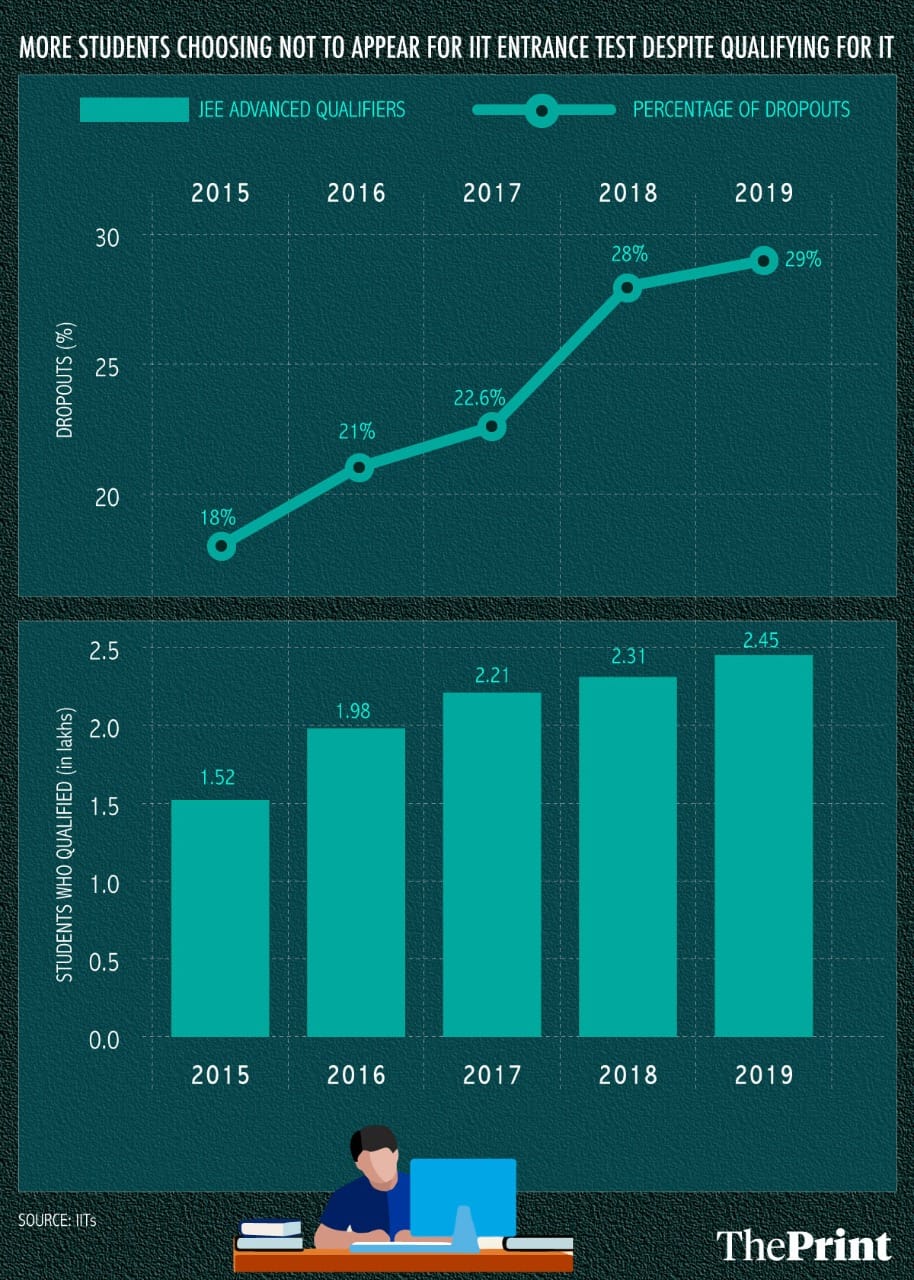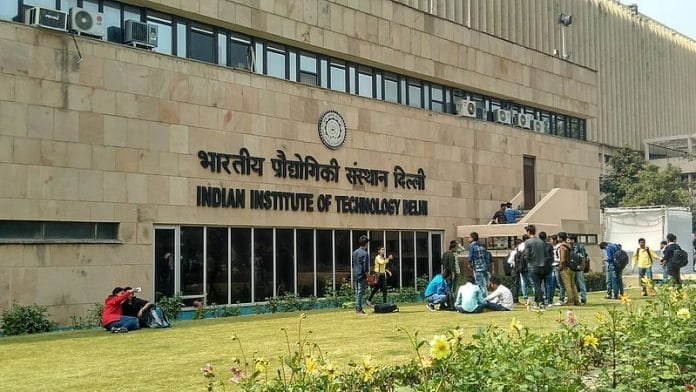New Delhi: The mad race to get into the Indian Institutes of Technology (IITs) seems to be fading. IIT entrance exam data suggests more students may now be choosing other options better suited to their aptitude and interests instead of wasting months in a pursuit they know will fail.
Admissions to the 23 IITs are determined by the joint entrance exam (JEE), which has two stages — Mains and Advanced. According to data for the past five years sourced from IIT, several students who cleared the first stage of the JEE opted out of the second one.
In 2015, 18 per cent of 1.52 lakh IIT aspirants — around 28,000 — didn’t attempt JEE Advanced even though they cleared JEE Mains, the first stage. In 2019, the number was 29 per cent of 2.45 lakh, or approximately 72,000.
Also read: 2,400 students dropped out of IITs in 2 years, nearly half were SC, ST, OBC
‘A positive development’
The IITs look at this as a positive development, a sign that students are recognising their capabilities early enough and not wasting more time in the pursuit of something unachievable.
JEE Advanced, officials contacted by ThePrint said, is twice as tough as Mains.
“If a student has been ranked 1.5 lakh in JEE Mains, chances are few that he or she will clear JEE Advanced,” said an IIT-Kanpur professor who has been involved with the admissions process.
“JEE Advanced is very tough and eventually only close to 40,000 students qualify for admission to IITs. For a student to waste two, three more months in trying to prepare for the advanced test then makes no sense and they rather choose to opt out.”
Those associated with the engineering entrance coaching business agreed, saying students are making more informed choices now.
“Students are at an advantage after JEE Mains and Advanced were introduced,” said Ajay Shukla, who teaches physics to IIT aspirants at a private coaching institute in Delhi.
“They get to know their capability at the level of Mains itself. If a student has secured a very low rank and is still selected for JEE Advanced, he or she chooses to opt out of writing the test instead of wasting time in trying for something unachievable,” he added.

The national academic director (engineering) at Aakash Educational Services Limited, another coaching institute, said students “who are unable to score more than 150 out of 360 in JEE Mains do not go for JEE Advanced because they know they will not be able to crack it”.
“Also, the time difference between both the exams is very less and does not give enough scope to students to prepare,” he added, refusing to give his name.
“Students are rather choosing to opt for private engineering colleges like Galgotias and others in Delhi/NCR and other government institutions,” he said.
Abhinav Singh, an IIT-aspirant who is now pursuing engineering at a private university in Haryana, said, the aforementioned reason was exactly why he didn’t attempt the Advanced test.
“I secured a low rank in JEE Mains last year,” he added. “Although I was selected for Advanced, I knew there was no point in writing the test because I knew I would not be able to make. So I chose to go for a private university instead.”
As mentioned before, more and more students are clearing the Mains — the number rose by nearly a lakh between 2015 and 2019 — which makes the odds of acing the Advanced Test more improbable.
Explaining the rise in the number of people clearing the Mains Test, professor Dheeraj Sanghi, also from IIT-Kanpur, said, “With the increasing number of seats in IITs, the number of eligible candidates also needs to go up.
“A certain political pressure also works here,” he added. “They have to only increase the number of eligible candidates and not reduce it.”
Also read: No slowdown at IITs as jobs and internships continue to flow as usual







these 28000 student are lower rank and they knows they will not clear advance.
Will unemployment reduce
Will unemployment decrease this way